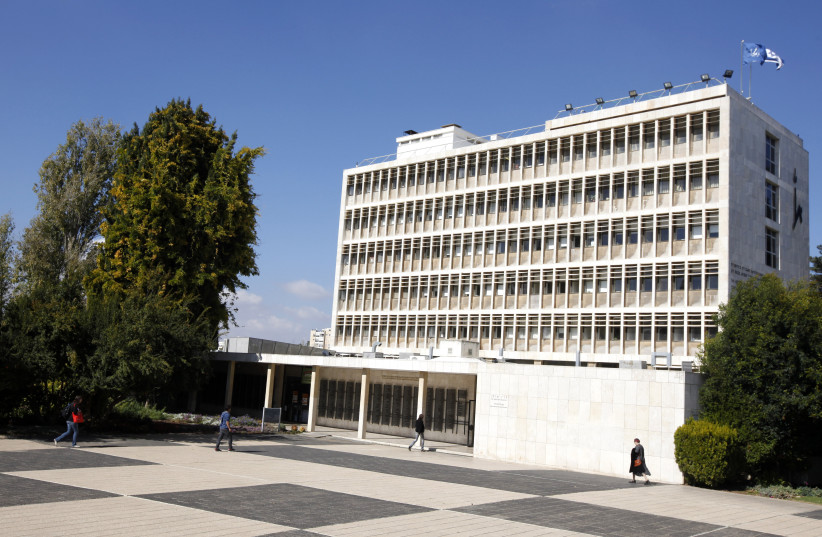Students from the Rocketry Club at Hebrew University of Jerusalem launched an experimental rocket from Kibbutz Beit Nir in southern Israel on Friday, the university announced on Sunday.
The rocket launch was one of the first of its kind conducted in a long time in Israel, as it was informal, for civilian purposes and not confidential. The medium-sized, bright pink rocket, named RAM-1:RAM due to the fact that it was assembled at the Givat "Ram" campus of the university, managed to reach a height of about 2,360 feet (720 meters) and speed of about 260 mph (430 kmh). The rocket was painted pink to mark Breast Cancer Awareness Month.
About 30 members of the Rocketry Club were present at the launch, alongside dozens of additional spectators, including academia and industry representatives. Zik Di-Noore, an Israeli pyrotechnics company, was trusted with the pyrotechnical side of the launch.
A number of companies and organizations assisted the project, including Rafael, Israel Aerospace Industries (IAI), Condor Pacific and the Technion, among others.
The students conducted tests and measurements and data concerning the flight were transmitted to a ground station during the launch. The rocket succeeded in landing safely by deploying a parachute, preventing damage to the sensitive equipment and electronics installed on it.

"The important achievements have in our view been achieved. We reached the required altitude, we were able to open the parachute and we were able to get telemetry in real-time. The information from the telemetry, from the experiment and from the storage of the rocket will be deciphered later. A long process of analyzing the results will soon begin," said the club in a statement on the Hebrew University's website.
The Rocketry Club stated that the experiment was conducted in order to help balance the negative connotation which the word "rocket" has in Israel due to their use by terror groups and to remind people that there are positive uses for rockets as well.
This is the third year in which the club's enrichment program was conducted at the Spice Institute of Physics at the Hebrew University.
"Such a club allows for a slightly less formal interaction, and to hear from researchers and content experts about themselves and about the research and experiments they are conducting," said Prof. Reem Sari, a member of the steering committee of the club and the Vice President of Research and Development at the university. "In addition, the students get experience in teamwork and bring the diverse knowledge they acquired during the degree to expression on the way to solving a real engineering problem."
